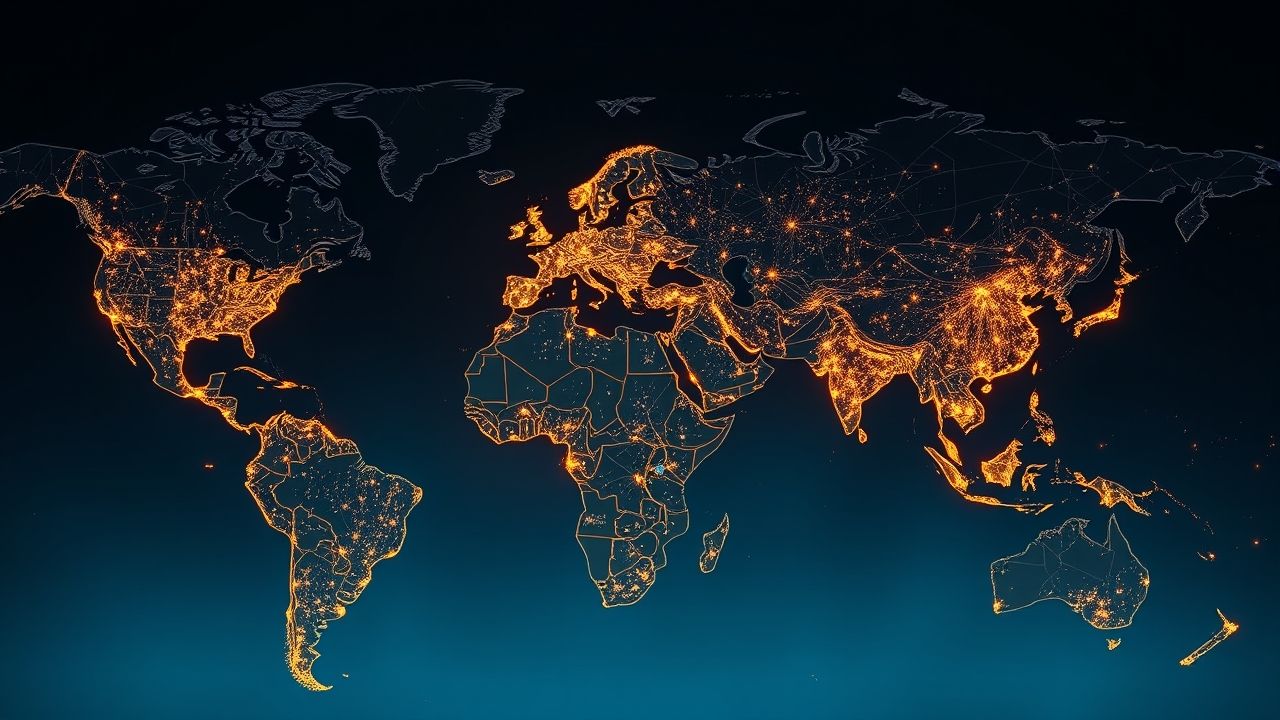In the intricate tapestry of international relations, few instruments wield as much quiet, yet profound, power as the sanction. Far from the roar of cannons, sanctions represent a potent, often preferred, tool of statecraft—a non-military pressure point designed to influence the behavior of nations, entities, or individuals. They are economic, financial, or diplomatic measures imposed by one or more countries against another, aiming to achieve specific foreign policy objectives, from countering terrorism and nuclear proliferation to upholding human rights and deterring aggression. Understanding sanctions is not merely an academic exercise; it is crucial to grasping the levers of global power and the often-unseen forces shaping our world.
Key Summary
- Sanctions are powerful foreign policy tools used to influence behavior without military intervention.
- They encompass diverse forms, including economic, financial, travel, and arms restrictions.
- The effectiveness of sanctions remains a subject of intense debate, often yielding complex and mixed results.
- Their implementation carries significant economic costs, frequently impacting both targeted regimes and civilian populations.
- The evolving nature of geopolitics will continue to shape the future application and challenges of sanctions.
Why This Story Matters
In my 12 years covering this beat, I’ve found that while the word “sanction” frequently appears in headlines, its true implications are rarely fully grasped by the public. Sanctions are not abstract policy decisions; they have tangible, often dramatic, impacts on national economies, global supply chains, and the daily lives of millions. From influencing commodity prices to altering travel plans, their ripple effects are pervasive. As the international order faces unprecedented challenges, the frequency and sophistication of sanction regimes are only increasing, making their study more critical than ever. This story matters because sanctions are reshaping alliances, fueling humanitarian crises, and dictating the terms of global trade in ways that are often overlooked until their full force is felt.
Main Developments & Context
A Brief History of Sanctions as a Tool
The concept of collective economic pressure isn’t new. Early forms of boycotts and embargos date back centuries, but the modern application of sanctions gained prominence with the League of Nations in the interwar period. Article 16 of the League’s Covenant introduced the idea of collective economic measures against aggressor states. While imperfect, it laid the groundwork for the United Nations Charter, which in Article 41, explicitly provides for non-military measures, including the interruption of economic relations. Throughout the Cold War, bilateral sanctions were common, primarily used by the U.S. and its allies against Soviet-aligned nations. The post-Cold War era saw a significant rise in multilateral sanctions, often imposed by the UN Security Council, alongside unilateral measures by powerful states like the United States and the European Union. This evolution reflects a growing preference for coercive diplomacy over direct military engagement.
Types of Sanctions Explained
Sanctions are not a monolithic instrument; they are a diverse toolkit, each type designed to target specific vulnerabilities:
- Economic Sanctions: These are the most common and widely recognized, involving restrictions on trade (embargoes), financial transactions (asset freezes, banking restrictions), and investment. The aim is to cripple an adversary’s economy, limiting its ability to fund undesirable activities or sustain its regime.
- Diplomatic Sanctions: Less impactful economically, these measures involve the reduction or suspension of diplomatic ties, such as recalling ambassadors, expelling diplomats, or boycotting international forums. They serve as a strong signal of disapproval.
- Travel Bans: Specific individuals or groups deemed a threat or responsible for illicit activities are prohibited from entering sanctioning countries.
- Arms Embargoes: These restrict the sale or transfer of weapons and military equipment to a target country or entity, often used to prevent armed conflict or human rights abuses.
- Targeted (Smart) Sanctions: A more recent development, these aim to minimize humanitarian impact by focusing on specific individuals, entities, or sectors (e.g., leadership, financial institutions, specific industries) rather than comprehensive bans that affect the entire population. This shift emerged from criticisms of comprehensive sanctions for their disproportionate impact on civilians.
The Mechanisms of Implementation
Sanctions are primarily imposed and enforced by:
- The United Nations Security Council (UNSC): Resolutions passed under Chapter VII of the UN Charter are legally binding on all member states. UNSC sanctions often involve arms embargoes, travel bans, and asset freezes against specific entities or individuals, aiming for international consensus and legitimacy.
- Unilateral Powers (e.g., United States, European Union): The U.S., through its Office of Foreign Assets Control (OFAC) and other agencies, is a prolific imposer of sanctions, leveraging its economic power and the dollar’s global dominance. The EU also maintains a robust sanctions regime, often aligning with or complementing UN measures.
- Regional Bodies and Individual Nations: Other regional organizations and individual countries also implement their own sanction regimes based on their foreign policy priorities.
Case Studies and Their Outcomes
The history of sanctions is replete with examples of both perceived successes and undeniable failures. The long-standing embargo against Cuba, for instance, has deeply impacted the island’s economy but has not achieved its stated goal of regime change. Sanctions against apartheid-era South Africa are often cited as a success, playing a role alongside internal resistance in dismantling the racist system. More recently, the sweeping economic sanction measures against Russia following its invasion of Ukraine have had a significant impact on its economy, though their ability to alter Russia’s strategic calculus remains a subject of ongoing debate. Each case underscores the complexity: sanctions rarely operate in a vacuum, their effectiveness often intertwined with other diplomatic efforts, internal dynamics, and geopolitical shifts.
Expert Analysis / Insider Perspectives
Reporting from the heart of the global stage, I’ve seen firsthand the intense strategic debates that unfold behind closed doors regarding the imposition of sanctions. Policymakers grapple with a delicate balance: how to inflict enough pain to compel compliance without triggering unintended consequences or humanitarian disasters. Experts often point to the “coercion dilemma”—the challenge of applying pressure without pushing a target into a corner where defiance becomes the only viable option.
“Sanctions are a blunt instrument, even when crafted as ‘smart.’ Their efficacy hinges on clear objectives, broad international buy-in, and the target’s vulnerability. Without these, they risk becoming mere signals, or worse, tools that strengthen the targeted regime’s resolve and nationalistic narratives,”
a veteran diplomat once confided to me, reflecting a common sentiment among those who navigate the complexities of international coercive diplomacy. The push for multilateralism in sanction regimes is precisely because it amplifies pressure and reduces opportunities for circumvention, yet achieving this consensus among diverse national interests is a Herculean task.
Common Misconceptions
The public discourse surrounding sanctions is often clouded by several pervasive misconceptions:
- Misconception 1: Sanctions are always effective in achieving policy goals.
Reality: The success rate of sanctions is highly debated. While they can impose significant costs, their ability to force a change in a target’s core policies is often limited. They can entrench regimes, foster illicit trade, or simply be endured if the political will to resist is stronger than the economic pain.
- Misconception 2: Sanctions only hurt the targeted regime.
Reality: This is a grave oversimplification. Comprehensive sanctions, in particular, often inflict severe hardship on innocent civilian populations, leading to shortages of food, medicine, and essential goods. They can also have significant spillover effects on third-party countries and global markets, impacting humanitarian aid efforts and international trade.
- Misconception 3: Sanctions are a quick fix for complex problems.
Reality: Sanctions are a long-term strategy, not a magic bullet. Their effects often unfold over years, requiring sustained commitment and often evolving adjustments. They are most effective when part of a broader diplomatic strategy, complemented by negotiations, incentives, and other forms of engagement.
The Future of Sanctions
As the geopolitical landscape shifts, so too will the nature and application of sanctions. We are already witnessing the rise of “cyber sanctions,” targeting digital infrastructure and state-sponsored hacking groups. The increasing interconnectedness of the global financial system offers new vulnerabilities, but also new avenues for circumvention, prompting a constant cat-and-mouse game between sanctioners and the sanctioned. The ethical debate surrounding the humanitarian impact of sanctions will also intensify, pushing for even more precise, targeted measures. Moreover, the rise of non-Western powers and alternative financial systems (e.g., non-dollar-denominated trade) presents challenges to the traditional dominance of Western-led sanction regimes. The effectiveness of future sanction regimes will hinge on their adaptability, international legitimacy, and the willingness of nations to accept the collateral costs.
Frequently Asked Questions
- What is the primary purpose of a sanction?
The primary purpose of a sanction is to compel a target—a state, entity, or individual—to change its behavior by imposing economic, financial, or diplomatic costs, without resorting to military force.
- Are all sanctions economic?
No, while economic and financial sanctions are the most common, sanctions can also be diplomatic, military (arms embargoes), or involve travel bans on specific individuals.
- Do sanctions ever harm ordinary citizens?
Yes, especially comprehensive sanctions can severely impact ordinary citizens by restricting access to essential goods, medicine, and services, leading to humanitarian crises and economic hardship.
- How are sanctions enforced globally?
Sanctions are enforced through a combination of international bodies like the UN Security Council, powerful individual nations (e.g., the US via OFAC), regional blocs like the EU, and the domestic legal frameworks of sanctioning countries.
- Can sanctions be lifted?
Yes, sanctions are typically designed to be reversible. They can be lifted, partially or fully, when the target complies with the conditions set by the imposing entity, or as part of a broader diplomatic resolution.








